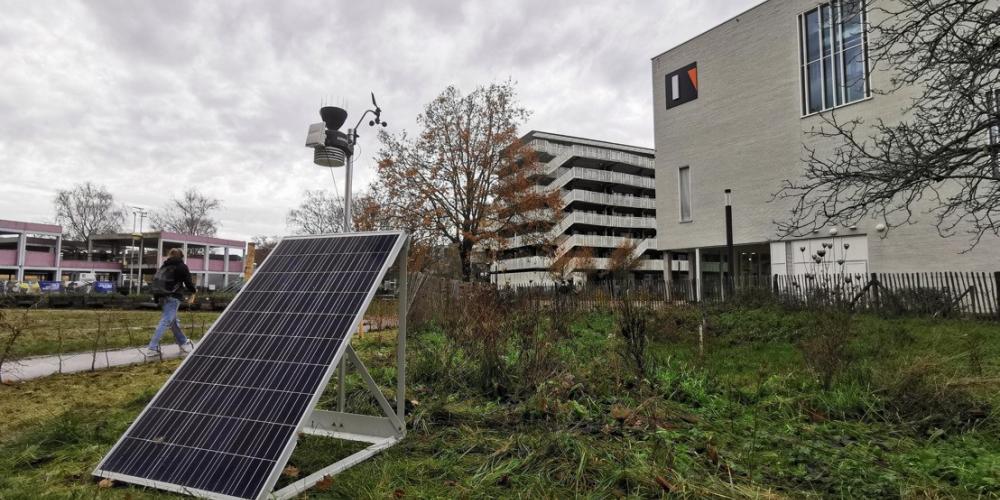
For several weeks now, the Etterbeek campus of the Vrije Universiteit Brussel has been home to a small fully automatic weather station that is part of the VLINDER network. That network was rolled out in Flanders and Brussels by UGent, and provides measurements of classical weather parameters such as temperature, wind, rain and humidity at locations that do not belong to the KMI measurement network, such as highly urbanised areas. With the VLINDER network, meteorologists, climatologists, hydrologists and AI specialists aim, among other things, to investigate the influence of the immediate environment on our weather.
"A VUB PhD student will use machine learning to try to model the impact of the urban environment on temperature. This can help urban planners to quickly calculate the impact of urban greening during heat waves, among other things," says Lesley De Cruz of the VUB research group ETRO and the KMI. "Hydrologists will use soil sensors to measure how rain penetrates the soil and how long soil moisture is retained during periods of drought. The weather station will also be accompanied by an atmospheric corrosion sensor from the VUB SURF research group, which will measure the corrosivity of different steel alloys. Through machine learning, they will investigate the relationship between the sensor's output and the measured weather variables."
The weather station has been operational for several weeks, and will soon be equipped with additional sensors. Anyone can access weather data online via the VLINDER dashboard managed by UGent.
"Today, there are four VLINDER weather stations on the Brussels territory", knows De Cruz. "The intention is to add another ten or so. In time, we also hope to use artificial intelligence to make hyperlocal weather forecasts by linking the data from these weather stations back to the real situation on the ground and putting it into models. With this, we aim to optimise weather forecasts locally, with a resolution of a few tens to hundreds of metres. In a densely built-up city, the immediate environment plays an important role, especially in terms of ambient temperature. Indeed, during a heat wave, a few degrees make a big difference, especially for the health of sensitive people."
The first results are likely to be presented at the Brussels I Love Science festival, which will take place in October.